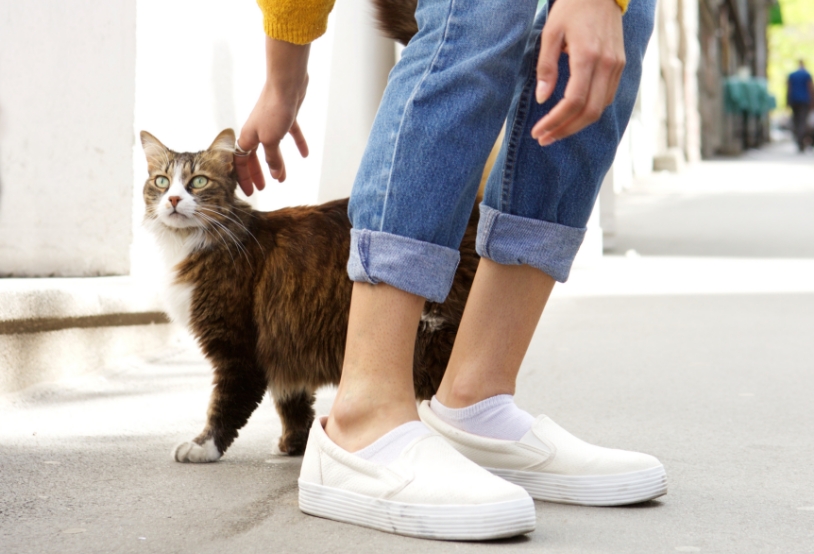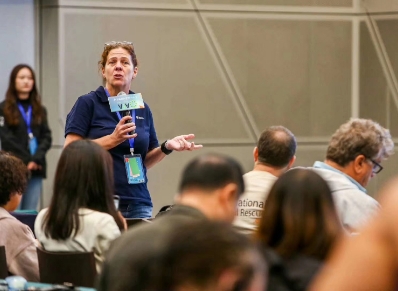CCCP: Benefits and Challenges
The biggest complaints about street cats relate to their mating behaviour and the nuisance this causes through yowling, fighting and marking territory with pungent urine. The CCCP is able to counter most of these but there are many other advantages too:
- Desexed cats vocalise, roam and spray less;
- Desexed cats produce no kittens and therefore suffering, diseased and dying kittens on the street is a thing of the past;
- A desexed cat colony stabilises and then decreases in size;
- Desexed cats are healthier and vaccinated against rabies;
- Sick street cats are removed from the colony, thus preventing disease and ensuring a healthy community;
- With a reduction in cat numbers and related mating behaviours, the urban environment improves and complaints also decrease;
- Fewer cats are euthanised; and
- Desexed street cats continue to deter rats and other vermin.
Challenges to the CCP Programme
The CCCP programme traps street cats, neuters them and then returns them to their colonies where they are cared for by one of our volunteers. Our goal is to stop cats breeding in a colony area entirely, in the hope that there will be none or very few street cats in the future.
It is worth remembering that the CCCP is not a cat feeding programme; it is about reducing street cat populations through desexing.
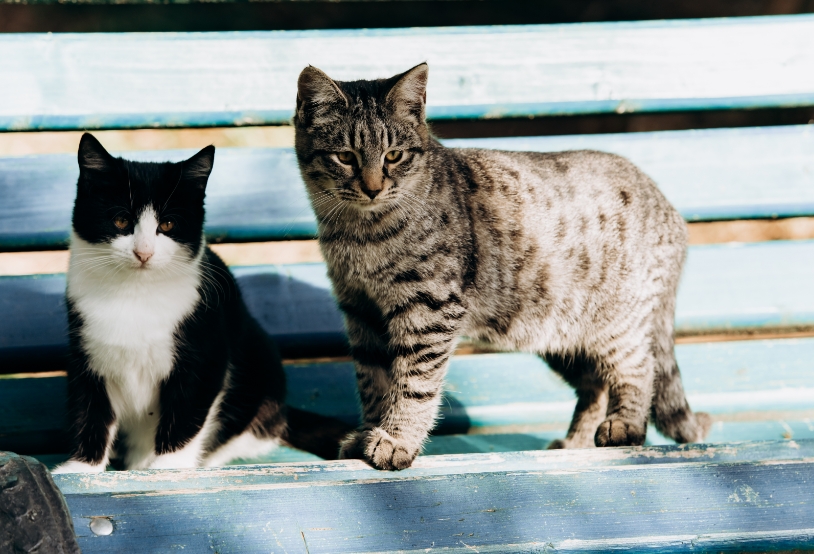
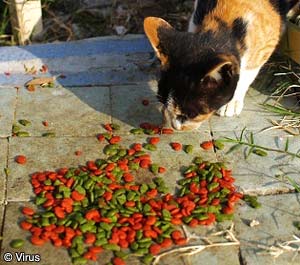
Kind-hearted people often leave food for street cats but the result can be counter-productive for our programme, increasing the size of colonies rather than reducing them.
These same kind-hearted people also do not realise the wider impact of their action; leftover food attracts pests and causes hygiene problems which can turn residents against the cats. When the government is called in to deal with the problem, the more socialised, desexed cats are often caught first, leaving behind a population of undesexed, hard-to-catch cats that continue to reproduce.
It is worth remembering that feeding animals in parks and other public facilities is against the law, and offenders may be fined $2,000 and imprisoned for up to 14 days. Outside of these specific areas, failure to clean up, anywhere, constitutes a littering offence under Hong Kong law and carries a penalty of $1,500.
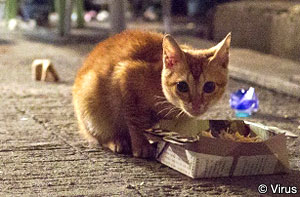
Some owners keep their cats confined during the day and then release them at night to roam. These undesexed cats mate with street cats which increases the cat population in the area. They also cause nuisance at night as well as hygiene problems.
Please be a responsible cat owner: desex your cat and ensure it has a collar with a name tag. Be very careful about letting your cat roam on the street; it greatly increases its chances of being hit by a car, or attacked by a dog.
A constant challenge to the CCCP is the abandonment of pet cats. These could be unwanted kittens from undesexed pet cats, or owners who move and leave their pet cats behind. Regardless of the source, these cats pose a challenge to both the community as well as CCCP carers, who find new cats in their colonies and have to work extra hard to trap and desex the feral street cats, while identifying and removing the pet cats for adoption.
Pet cats abandoned on the street often live very short, traumatic lives. They are used to living in a home and having all their needs met by their owner. They do not have the survival skills of their feral cousins.
Abandoned pet cats are at increased risk of injury from traffic accidents and dog attacks. They are also unlikely to be immediately accepted into the complex hierarchy of a cat colony and are at risk of being bullied and attacked by their fellow felines.
Unlike pet dogs that need to be licensed and microchipped, there is currently no identification system for pet cats, making it hard to distinguish between abandoned pet cats, owned roaming cats and existing street cats. Currently, both CCCP cats and homing cats are microchipped for identification by the SPCA; if you find a cat with a chip please call our Animal Receiving Department on 2232 5553 who may be able to help.
Community collaboration and mutual understanding are essential for the CCCP to work successfully. It requires patience because cat numbers take time to fall and understanding that the CCCP is the most humane way to reduce the street cat population.
